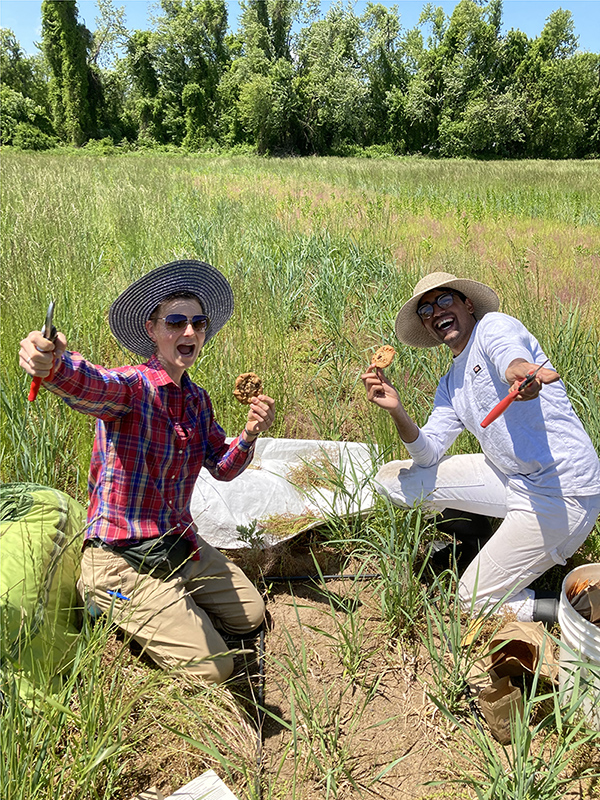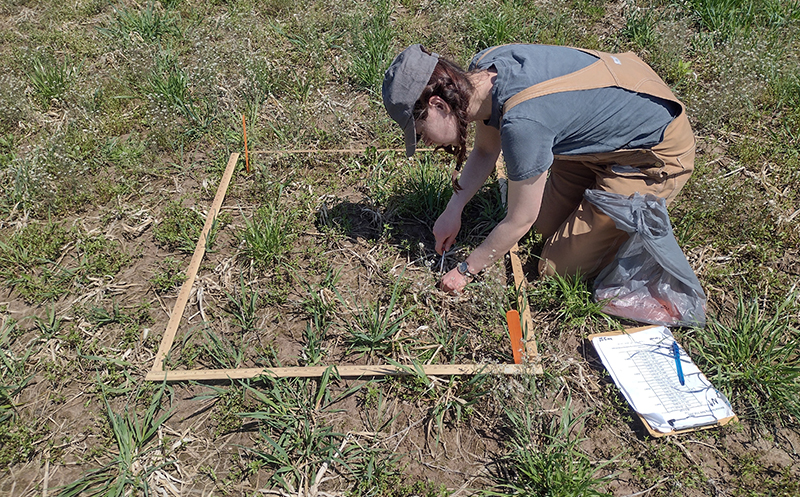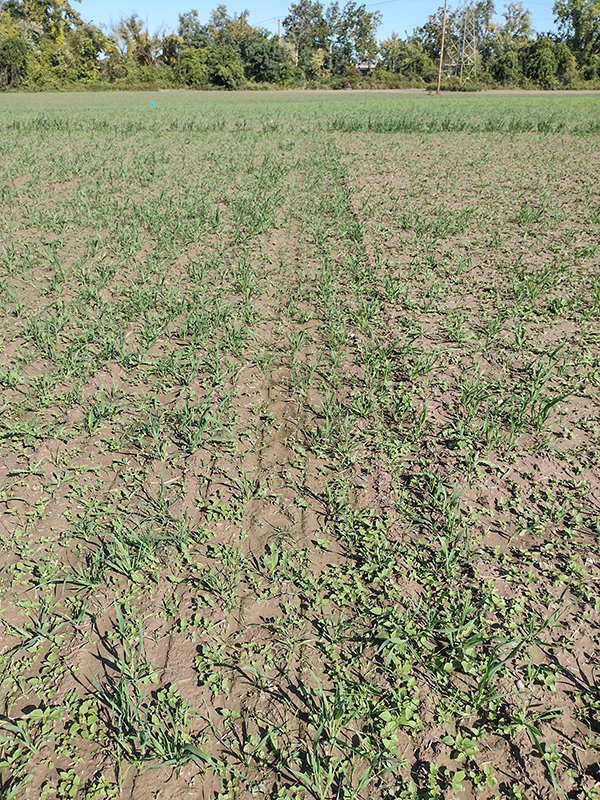Natasha Djuric
Sustainable Cropping Systems Lab, Cornell University
We work to increase cropping system sustainability through ecological intensification. Our research aims to answer applied agricultural questions that will directly benefit farmers. Themes relate to applied agroecology, climate change, and organic production.
Kernza® is the first food-use perennial grain crop. It can be harvested for grain for several years, and has deep roots that can access water and nutrients, thus reducing inputs, soil disturbance, and labor. Despite these benefits, adoption has been slow due to low yields and uncertainty in best management across regions.
One major constraint for organic farmers has been weed pressure during the establishment year. Like other perennials, Kernza grows slowly after planting and faces competition from faster growing fall and spring weeds. Increasing crop density is an unexplored cultural practice that could help reduce weed populations. However, too high of a seeding rate may cause crop overcrowding, reducing yield. The goal of this project is to test a range of seeding rates (5 pounds/ac W– 45 pounds/ac) and identify the optimum rate that balances weed suppression and within-crop competition in organic production. The Hudson Valley Farm Hub is hosting a field site, alongside five other sites in the Northeast and Midwest to provide regionally relevant knowledge. We are evaluating how Kernza seeding rate affects weed populations, establishment success, and grain yield. Ultimately, we aim to develop seeding rate recommendations for organic Kernza production to promote adoption of this crop.




